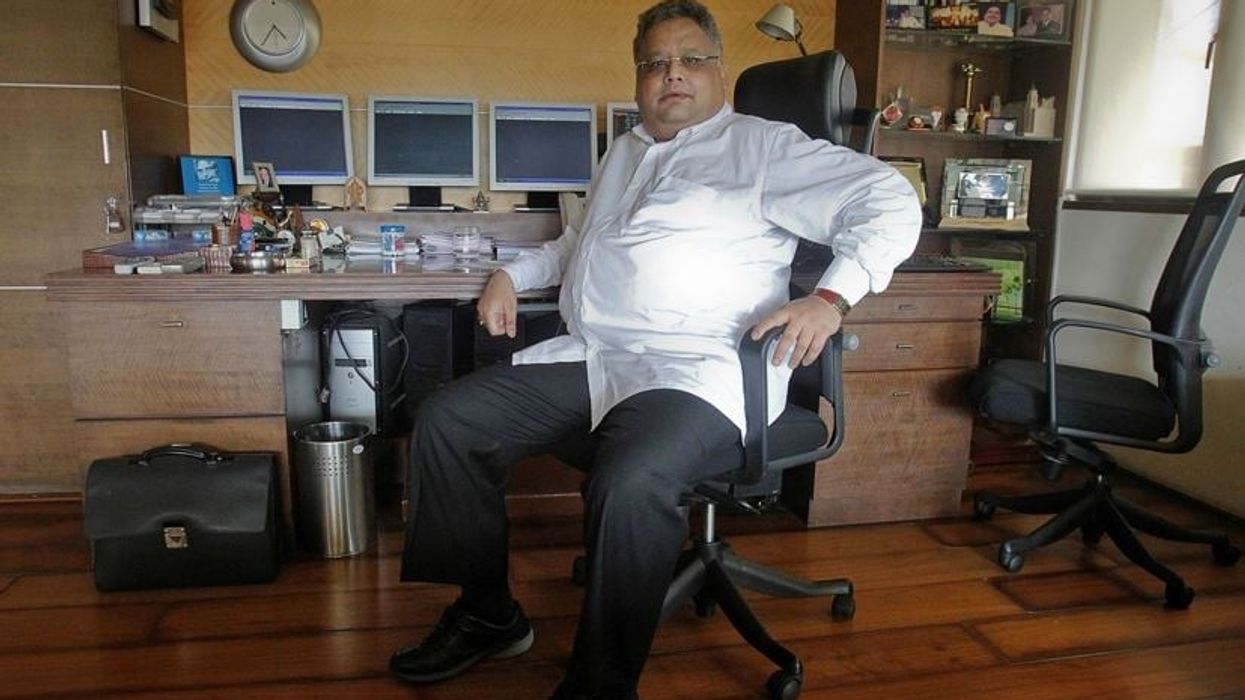VETERAN stock market investor Rakesh Jhunjhunwala, often referred to as India's Warren Buffett, died in Mumbai on Sunday (14). He was 62.
Jhunjhunwala died early in the morning due to a cardiac arrest, a source in his newly set up airline said.
Known as the Big Bull of Indian markets, his net worth was $5.8 billion (£4.81 bn), according to Forbes.
Starting his journey in stock markets while still in college with a small capital, he recently teamed up with ex-Jet Airways CEO Vinay Dube and former IndiGo head Aditya Ghosh to launch Akasa Air - India's newest budget carrier. The airline began commercial operations this month with a maiden flight from Mumbai to Ahmedabad.
An investor with the Midas touch, Jhunjhunwala was the 48th richest man in India.
A chartered accountant by education, he chose stock markets instead of auditing accounts. In 1985, Jhunjhunwala had invested Rs 5,000 (£52) and by September 2018, the capital grew to Rs 110 bn (£1.15 bn).
His portfolio includes companies like Star Health, Titan, Rallis India, Escorts, Canara Bank, Indian Hotels Company, Agro Tech Foods, Nazara Technologies and Tata Motors.
Overall, he had a stake in 47 companies at the end of the June quarter. Titan, Star Health, Tata Motors and Metro Brands were some of his largest holdings.
He was the chairman of Hungama Media and Aptech and was on the board of directors of firms such as Viceroy Hotels, Concord Biotech, Provogue India and Geojit Financial Services.
Born on July 5, 1960, in a Rajasthani family, Jhunjhunwala grew up in Mumbai, where his father worked as a commissioner of income tax. He graduated from Sydenham College and enrolled at the Institute of Chartered Accountants of India.
He earned his first big profit in 1986 when he bought 5,000 shares of Tata Tea at Rs 43 (45p) and the stock rose to Rs 143 (£1.49) within three months. In three years, he earned more than Rs 2 million (£20832.24).
When Jhunjhunwala entered the stock market, Sensex was at 150 points.
According to a Business Standard report, Jhunjhunwala was part of a bear cartel in the early 1990s betting against the stocks manipulated by the infamous stockbroker Harshad Mehta. The cartel held on to their short positions despite rising prices of the stocks which ultimately tanked as Mehta’s scam was unearthed.
His privately owned stock trading firm Rare Enterprises derived its name from the first two initials of his name and his wife Rekha, who is also a stock market investor.
Prime minister Narendra Modi expressed grief over Jhunjhunwala's death.
"Rakesh Jhunjhunwala was indomitable. Full of life, witty and insightful, he leaves behind an indelible contribution to the financial world," he tweeted.
From £52 to £4.81 billion: Life of India’s 'Warren Buffett' Rakesh Jhunjhunwala
An investor with the Midas touch, Jhunjhunwala was the 48th richest man in India.




